Emanui is a portable menstrual cup cleaner that saves water
The reusable Emanui menstrual cup cleaner is designed to offer users an easier, more sustainable way of cleaning the product on-the-go without having to use a public sink.
According to its creators, the Emanui cup cleaner and steriliser uses "at least 2,500 per cent less water" than regular cleaning methods, which often just sees users wash their cup under running water.
Made from the same medical silicone material typically used for the menstrual cups themselves, the cleaner weighs just 115 grams, making it compact and lightweight enough to be comfortably carried around in a bag.
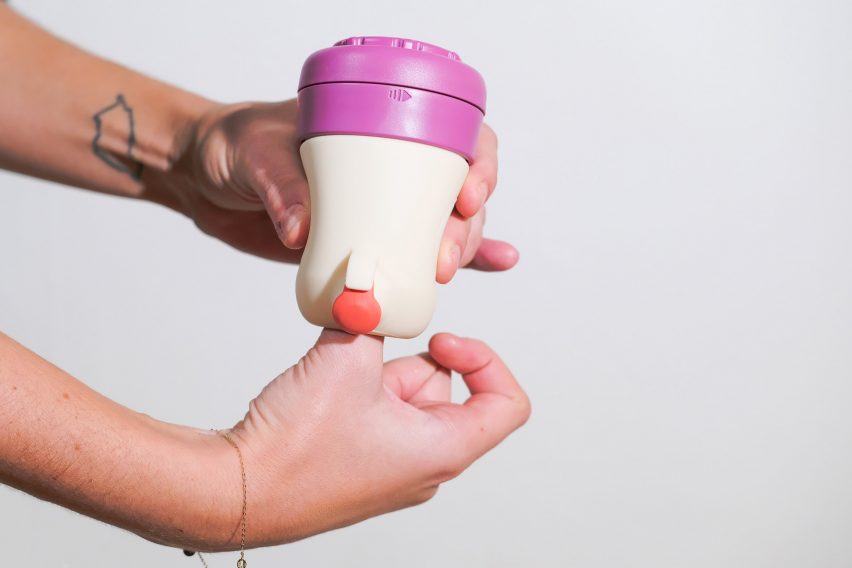
The Emanui comprises a main cylindrical body that slightly tapers in towards the top with removable sections on either end – one, more solid, section to hold water and the other for the cup to be inserted into.
When the cup requires cleaning, the user simply fills the removable bottom section of the Emanui up with water and screws it back onto the main body.
They can then carry this into the toilet cubicle with them, where they remove their menstrual cup, empty its contents into the toilet, and insert the stick-like end of the cup into the corresponding end of the Emanui.
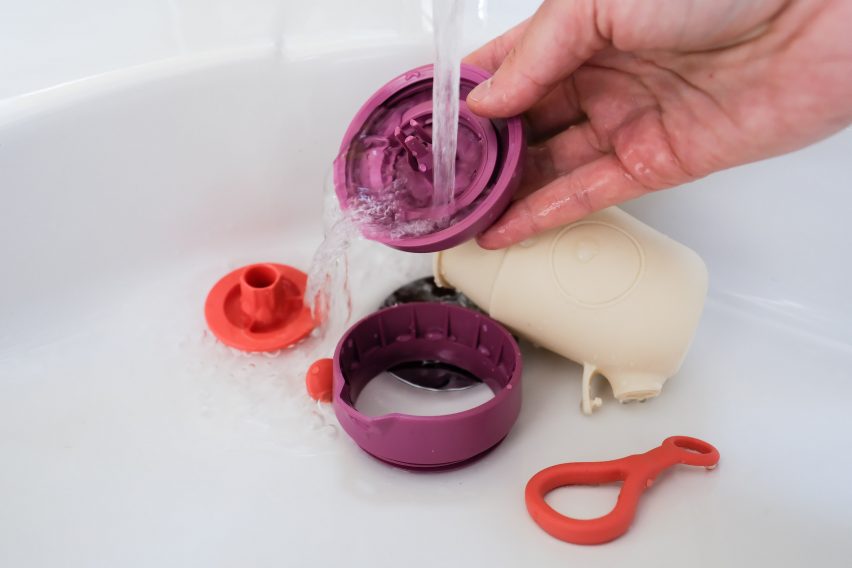
These joined items are then secured back onto the cleaner, with the menstrual cup being inserted into the Emanui's hollow body, which contains an internal brush.
Using "natural gestures" such as rubbing, shaking and squeezing, the brush and water work together to fully clean the cup without the need for additional chemicals.
The dirty water can then be poured into the toilet through a spout at the top of the Emanui, which the designers liken to a bird's beak.
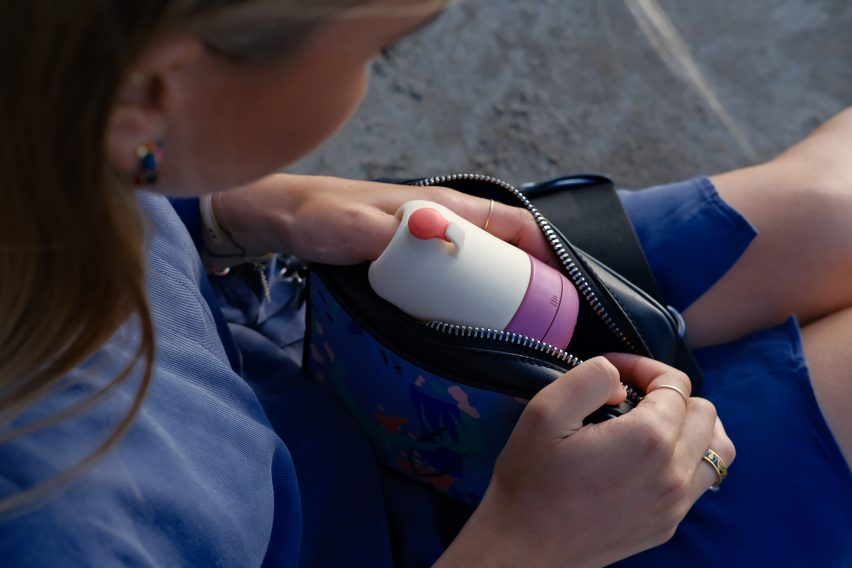
"Various social barriers – such as lack of tolerance, education, taboo, fear of showing that a person is menstruating – make the crucial cleaning and sterilisation process of the menstrual cup an even more complicated task," said Paul Lequay, who founded Emanui together with designer Iga Slowik.
"For example, when a user has to clean the cup in a common sink in front of everyone, or when boiling the cup in a kitchen pot at home," he added. "Therefore, we designed this solution to hygienically take care of the menstrual cup and empower its user, no matter the context."
"Cleaning in dirty or ill-equipped places leads to increased health risks, so many users do not use their cup outside of home," Lequay continued.
"We designed Emanui to hygienically take care of the menstrual cup anywhere its user goes. The attachment for the cup enables you to manipulate and clean it without dirtying your hands or risk dropping the cup."
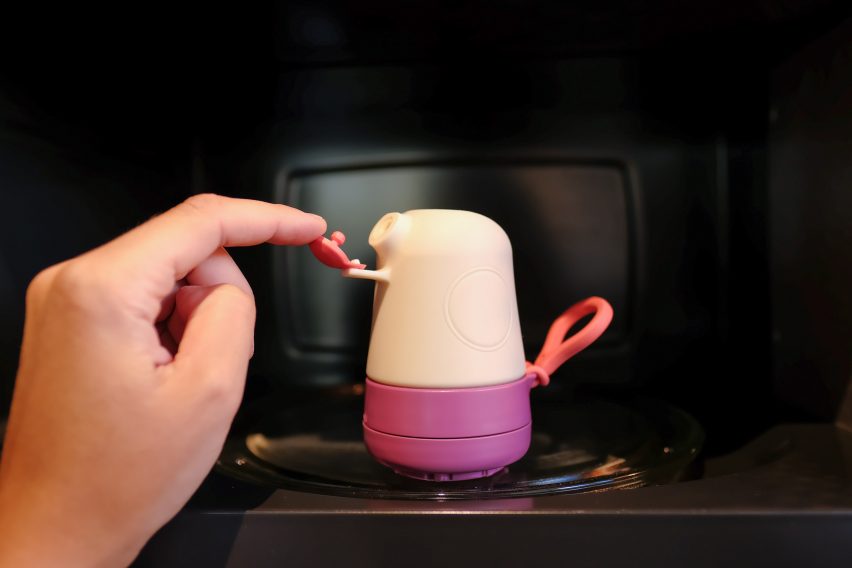
At the end of the menstrual cycle, users can sterilise the Emanui by heating it in a microwave for three minutes using a minimal amount of water, which comes out as steam from the spout. The user's cup can be stored inside the Emanui when not in use.
While the cleaner is currently designed for people with reasonable access to water, the creators plan to adapt it so that those without immediate access to water can also use it.

The creators gave the Emanui a soft-touch body to make it flexible when cleaning the cup inside, but also to provide comfort by giving it the feeling of "a protective skin".
They paired this texture with hues of purple, pink, red and cream, which are soft yet vibrant, in a bid to set the product apart from typical medical designs.
The Emanui is designed to work with standard menstrual cups – it is compatible with around 70 per cent of those on the market – and fits the three different sizes of small, medium and large.
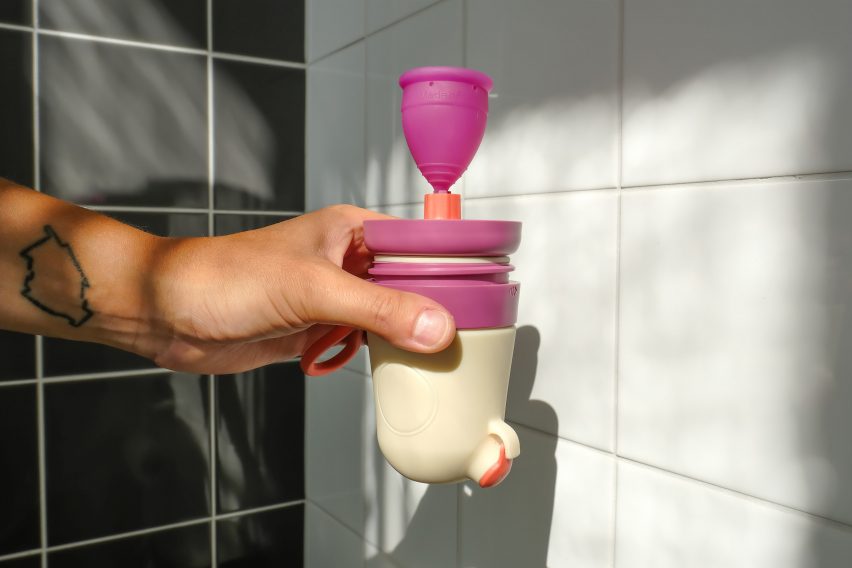
Other items designed to offer women with a more sustainable alternative to throwaway period products include a reusable, self-cleaning tampon applicator by start-up company Dame.
Called D, the product comprises two sections and a protective lid, and is made to be used with non-applicator tampons.
Meanwhile Central Saint Martins graduate Amelia Kociolkowska designed a spandex pouch called Carrie to offers those working in the police or armed forces a discreet and hygienic way to store their sanitary products.